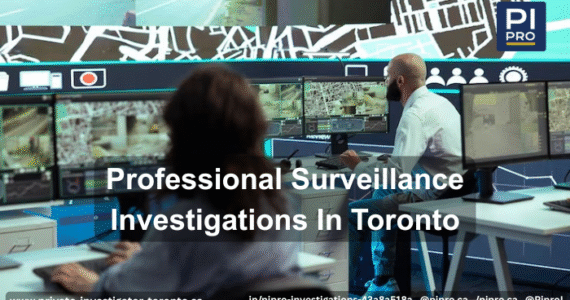
What’s Curiosity Investigation?
A curious investigation involves the complex procedures of collecting facts from people, including the complainant, subject, and witnesses of a crime scene or event.
Whether it’s for a theft investigation, performing a background check, or other private investigation services, the aim of a curiosity investigation is to gather facts that can become testimonial proof.
Why?
In addition to rebuilding a crime scene, curiosity investigations are useful to obtain evidence as well as connect facts that seem complex.
Interviewing and Investigation
Generally, interviewing aids investigation. It is one of the most important elements of a curiosity investigation. The reason is that it provides a verbal approval of an event or crime scene.
When preparing for an interview, the private investigator prepares a prioritized list of witnesses in their order of relevance. Additionally, the PI must anticipate the needs of the subject, as well as prepare to document the interview.
Interviewing the Complainant
Even though questions must be target around the case being investigated, we have put together a few questions a PI might ask you as the complainant. They include the following:
- Who do you suspect committed the alleged assault?
- Where did it happen?
- What exactly happened or was said?
- How did it affect you?
- How would you like to see the case resolved?
- Do you know of any other relevant details?
Interviewing the Subject
Here, the private investigator needs to conduct thorough research and a background check on the suspect before reaching out to them.
Many times, interviewing the suspect takes place after questioning the complainant. Naturally, anyone who has been prosecuted for misconduct will behave defensively.
When interviewing the suspect, the PI is expected to treat the accused equitably and with respect. Additionally, the investigator should not give the impression that he or she wants to get out facts or thinks the subject is guilty.
The investigator should be serious when interviewing the subject, as well as reiterate corporate rules and mandates.
Crucial questions to ask the subject during a curiosity investigation are:
- What is your feedback on the charges?
- If the subject claims that the charges are not true, ask why the complainant might lie.
- Are there any witnesses who have germane information?
- Are there any notes or other documentation regarding the incident(s)?
- Do you know of any other relevant information?
Interviewing Witnesses
After meeting with the client and the accused, the PI moves on to interview the witnesses to gather facts for the case.
A private investigator may interview witnesses such as defendants & plaintiffs, family members, medical examiners, bystanders, and more.
Similarly, it’s important to explain to the witness how crucial and relevant their contribution is to the Curiosity Investigation team.
At first, witnesses may be reluctant to share what they know. But background questions with a friendly approach before asking the needy questions provides a comfortable environment.
After a Curiosity Investigation, What’s Next?
Finalize Notes
Professional PIs must value their interviews. They can either convert their meetings into notes or transcribe their video recordings.
Then, the PI will turn the notes into a report that indicates when the interview happened, where it happened, and who was present. Keep in mind that the audio file, if there was one, must be documented verbatim.
Conduct Follow-up Interviews
Follow-up interviews may be crucial if the witness did not provide detailed information on the initial meeting. The PI would have to continue building a friendly relationship until the witness was willing to give useful information.
A private investigator may need to type up a narrative of the information they have, present it before the subject to make corrections and then, approve of it.
An exception to this Curiosity Investigation procedure is if there’s a disagreement between the stories of the parties involved, the PI would need to arrange second interviews. Finally, he or she needs to update whatever documentary evidence available.
Concluding Thoughts on a Curiosity Investigation
Usually, when a client sends us a query or needs to leverage our competency, we ask for the intent of the investigation. When sorted, we move on to discuss the quote.
Keep in mind, however, that a client must tell detailed information about the subject of the case. Additionally, a complainant would be required to provide supporting documents such as IDs and details of the subject for the investigation.
Combining curiosity investigation procedure with investigative research and the basics of surveillance aids us to hone our skills, and deliver top-notch service.
Get in touch with a Professional here.




